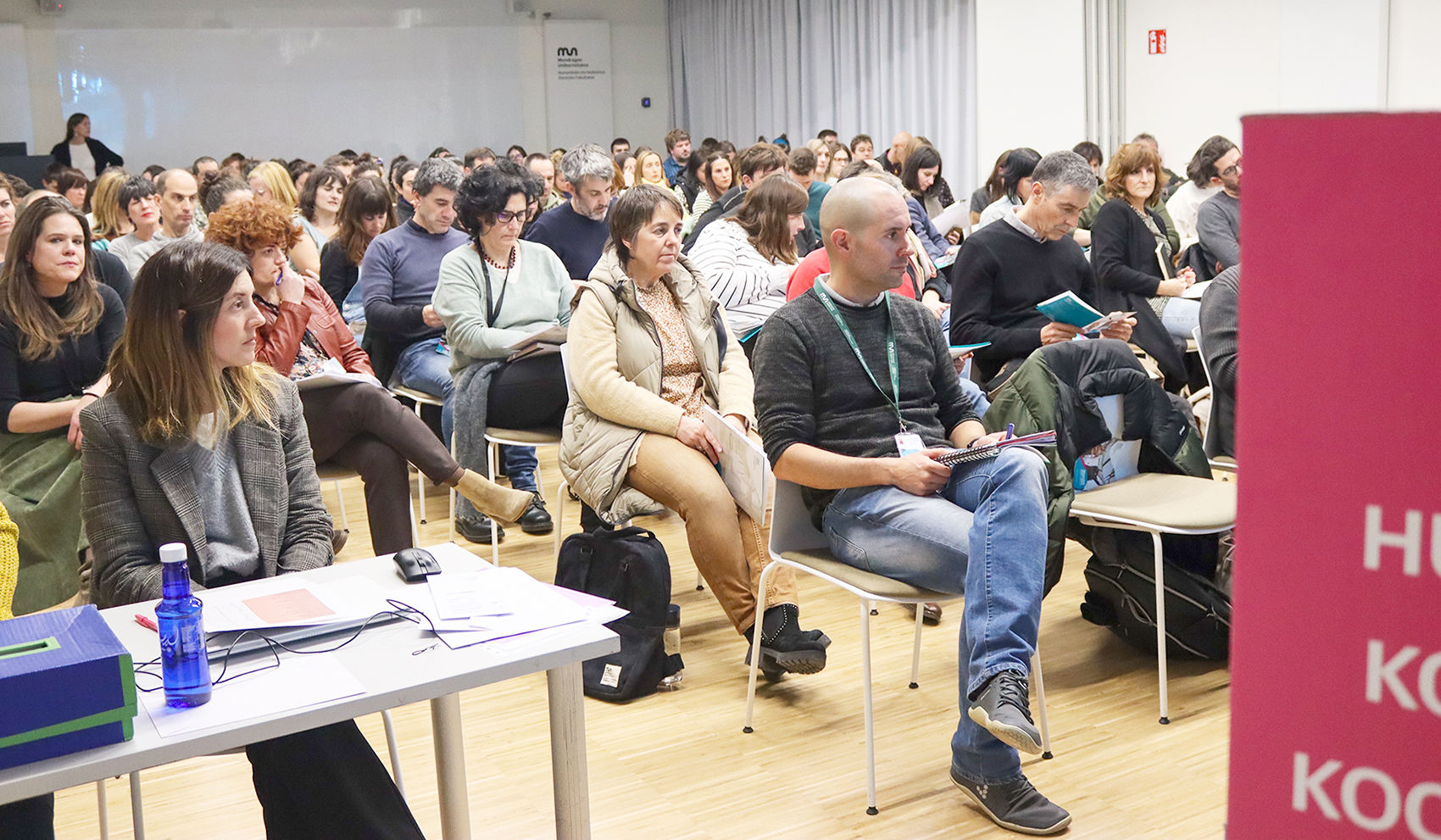About us
About us
Founded in 1976, the Faculty of Humanities and Education Sciences is a cooperative faculty at Mondragon University. We have 150 professionals on our staff, and the Faculty has over 1,700 students at different stages in their studies.
We are rooted in the Basque Country, and we keep a close eye on the world from our campuses in Bilbao, Eskoriatza and Aretxabaleta.
We are an institution that is prepared to face future contexts. Our work is based on research and we are trained to guide lifelong learning processes. We are prepared to face challenges.
We set the standard in educational innovation, cooperativism, communication and humanities, and we are part of a broad social ecosystem beyond the Faculty: educational institutions, companies, public organizations, the media, social movements, etc.
Our mission
Our mission is the starting point of our strategy.
We are a cooperative faculty at Mondragon University and our mission is:

To promote the following values in society:
- Participation and commitment.
- Solidarity.
- People-oriented.
- Social transformation.

To maintain a global perspective, with the Basque culture and language as its foundation
- Multilingual.
- Multicultural.

We are a motivated team of people committed to
- Innovation.
- Teaching.
- Research.
- Transfer.
Values
To align with our mission and ensure its development, the following are our values:

Passion
We are involved in our profession, committed, and dedicated to our shared project.

Connection
We foster trusting interactions by giving our best.

Innovation
We approach challenges proactively and with a critical eye, taking the lead in a dynamic and flexible way.

People-oriented
We promote a culture of holistic development, constantly learning from each other and focusing on humanity.

(Inter)Cooperation
We act responsibly and cooperatively among ourselves and with others.

Ecological justice and sustainability
We promote ecological justice and sustainability.




